Nothing can compare to the sorrow that is felt when losing a loved one, whether it’s a family member or a dear friend. And yet, during this time of grieving, we are still required to make major decisions and organize arrangements.
With everything from notifying family and writing an obituary to making funeral preparations, it seems there is a never-ending list of tasks to conduct in a short period of time. One decision to make is whether to choose cremation or traditional burial.
This can be a simple or complicated choice based on your own feelings and your family member’s wishes. But if the choice is made to cremate, the next question is determining if burying cremated remains is a fitting choice.

While you may wish to scatter cremated remains in a location that is meaningful to you or your loved one who has passed away, it may not be the best decision over the long-term.
There are more than a few reasons why you should bury ashes in a cemetery.
1. Here Today, Gone Tomorrow
We’ve all seen movies depicting family members or friends scattering their loved one’s ashes in a lake, a forest, or another place that may have been special to the individual.
These moments can feel special and provide a sense of peace at the time. But as time moves on, we also know that nothing in this world is permanent.
Lakes can dry up and forests could be ravaged by anything from a forest fire to logging or deforestation.
Other open spaces that were once peaceful and calm could eventually be converted into a loud, bustling shopping center, concrete parking lot, or landfill.
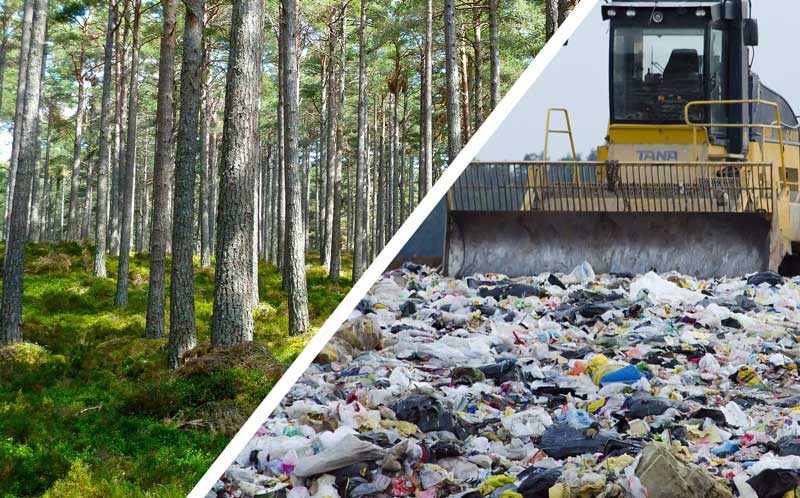
The process of scattering cremated remains can also be unpredictable, which can compromise the impact of the event.
Wind can end up blowing the remains in a direction away from your designated spot. While in an even more unfortunate instance, they could end up blowing directly toward the people who are in attendance.
Burying cremated remains in a cemetery, on the other hand, provides a place dedicated to your loved one.
You can purchase a specific plot that will be devoted to their memory. Services can be held and memorials or religious rites can be conducted on the site to make it feel even more special.
2. A Long-Term Resting Place
It is understandable for families to have a deep desire to keep their loved ones close, which is why many people bring their family members’ cremated remains home with them.
While memories can be made with the urn resting on a shelf or your fireplace mantle, the issues tend to arise once you are gone.
All too often, we hear horror stories of ashes being sold in garage sales and individuals not realizing what is inside until they arrive home.
Other instances occur as people pass on and the remains of their loved ones are sold as part of an estate or home purchase, leaving them to the new homeowner to decide what to do with them.
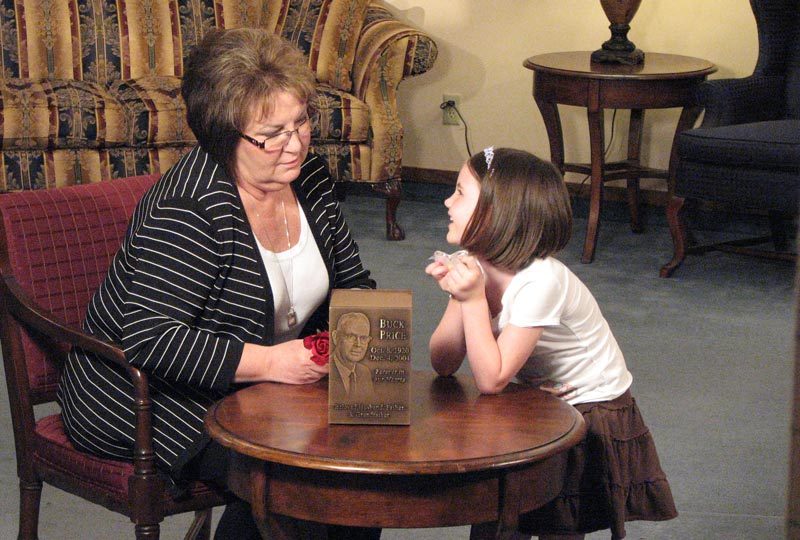
In most cases, these individuals will do something that isn’t in the best interest of your loved one such as leaving them somewhere with no meaning, or even throwing the cremated remains away.
It is much more conducive to protecting your family member or friend’s memory to provide a location in a cemetery such as an in-ground space with a cremation urn vault or in a Niche Tower, marking it with a bronze marker or headstone.
This will give you the ability to visit them on special occasions ranging from holidays and anniversaries to birthdays and other special events.
3. Leave a Legacy
Few things are as important to a person’s memory than the legacy they leave behind and the way people remember them.
How a loved one chose to live their life represents the legacy they wanted to leave behind. And as their friend or family member, it is up to you to protect that on their behalf once they are gone.
By burying cremated remains in a cemetery, you dedicate a permanent resting place for both their cremated remains and their memory.
Their name will be etched into the world’s history as someone who made a significant impact on at least one other person during their time on this earth.
This legacy will be passed on for generations to come as you share stories with your children, their children, and with others about their life passions and accomplishments.
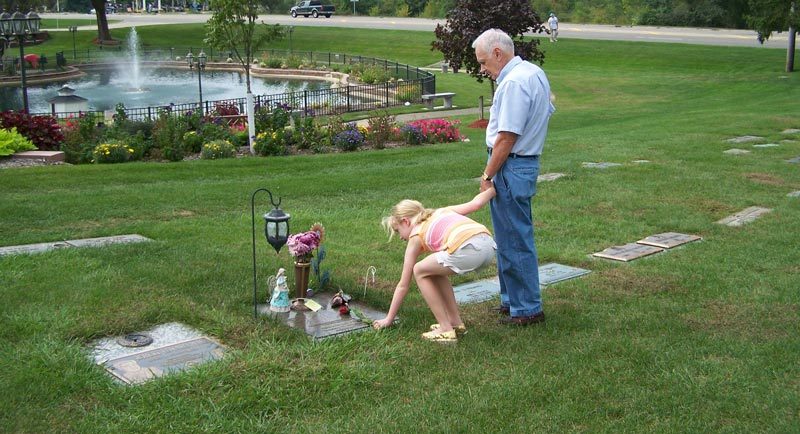
Also, since cremated remains require much less space compared to a burial vault or full casket, lifelong companions, families, or even best friends could be buried right next to each other eternally.
When purchasing a final resting place in a cemetery, it is important to request specific details regarding immediate and future options when it comes to burying remains and if additional people can share the same space when the time comes.
4. Emotional Healing
Visiting a dedicated spot within a cemetery can offer emotional healing and much-needed closure for those navigating the difficult journey of grief. The burial space provides a tangible location to mourn, remember, and memorialize the life of the departed in a serene setting.
As time unfolds and seasons change, recurrent visits can become a source of solace and comfort for those left behind.
For many families, a permanent final resting place also allows them to maintain a continued sense of connection with the deceased.
5. Symbolic Meaning
Burying cremated remains in a cemetery is symbolic of honor and respect.
This practice signifies that the departed still holds a special place in the physical world, not just in the hearts of their family and friends.
In a sense, burying a loved one in a cemetery is a symbolic act that bridges the gap between the physical and spiritual realms.
It is an act of love that stands as a testament to the bond shared and the importance of the individual’s life.
6. Sense of Community
Cemeteries can serve as a healthy platform where multiple generations come together to remember and pay tribute to their ancestors.
When families choose to inter cremated remains in a cemetery, they not only pay tribute to their loved ones who have passed away but also become part of a larger, interconnected community committed to preserving the legacies of those who came before them.
This caring and compassionate choice fosters a sense of belonging as relatives recognize their place within a lineage that extends far into the past. It is with this enduring connection that memories and stories are passed down through the ages.
How to Bury Cremated Remains in a Cemetery
If you’re seeking guidance on the process of burying cremated remains in a cemetery, this comprehensive guide will walk you through the steps involved in the process.
Step 1: Select a Burial Space
Your first step is to get in touch with your chosen cemetery to check for the availability of burial spaces. If you’ve recently experienced a loss and haven’t already purchased a plot, the funeral home can assist you in making this initial contact. This is also a good time to inquire about the cemetery’s rules and regulations.
Step 2: Choose an Urn and Urn Vault
Next, you will need to select an urn suitable for burial to house the cremated remains. Additionally, you’ll likely need to purchase an urn vault to safeguard the urn and support the weight of the earth and heavy cemetery equipment.
Step 3: Complete Necessary Paperwork
To grant permission for the burial, ensure the proper recording of the interment, and obtain the necessary permits, all required paperwork must be completed and signed ahead of time.
Step 4: Schedule the Burial
Coordinate with the cemetery to set a date and time for the burial. Keep in mind that they may have designated hours for interments, and weekend burials could involve an additional fee.
Step 5: Plan the Commemorative Service
It will then be time to decide whether you’d like to hold a commemorative service at the graveside. This can be a public gathering or a more intimate, private ceremony. It should be noted that some families choose not to have a service.
Step 6: Prepare the Gravesite
Either the day of the service or the day before, the cemetery staff will prepare the gravesite so that it’s in suitable condition for the ceremony. If a service is scheduled, a tent and chairs for attendees will also be set up at the burial site.
Step 7: Conduct the Burial
Following the service, the cremated remains will be buried. Cemetery personnel will prepare the gravesite by excavating a hole to accommodate the urn vault and lower it into ground. The surrounding earth is then returned to the grave, and any landscaping is completed. While cemetery staff typically handle this aspect, there are times when families participate.
Step 8: Create a Lasting Memorial
To memorialize your loved one, consider purchasing a personalized grave marker from either the cemetery itself or a reputable monument company. Adhering to the cemetery’s guidelines regarding the type of markers permitted will ensure a lasting and meaningful tribute.
Step 9: Care for the Gravesite
It is always a good idea to inquire about the cemetery’s maintenance policies. Some cemeteries provide comprehensive maintenance services, while others expect families to take on certain responsibilities, like trimming around the marker and removing weeds.
If the cemetery offers a perpetual care fund, you may want to consider it to ensure the burial space is maintained indefinitely.
Step 10: Reflect and Remember
Be sure to take time for yourself and your family to reflect and remember your loved one. This can be done by visiting the gravesite regularly, creating a memorial at home, or through other personal tributes that are meaningful to you.
Want More Information About Burying Cremated Remains?
If you need more details or guidance on burying cremated remains, reach out to your chosen cemetery or funeral home. They will provide you with the necessary information and support to make this important decision a seamless and meaningful one.
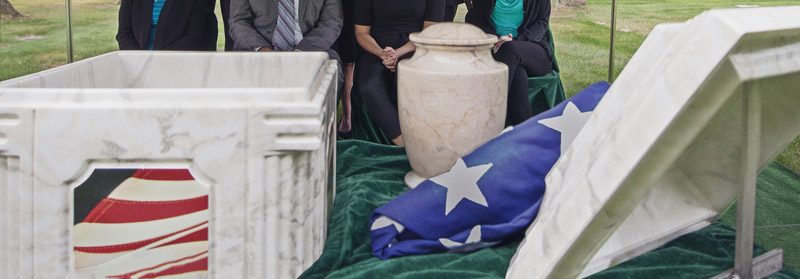
And remember, the choice to honor your loved one is one of the best options you have available to you.
Learn more about why an urn vault is a great choice and the additional benefits they provide. If you’d like more information about how Trigard can assist you with this process, please contact us today for details.

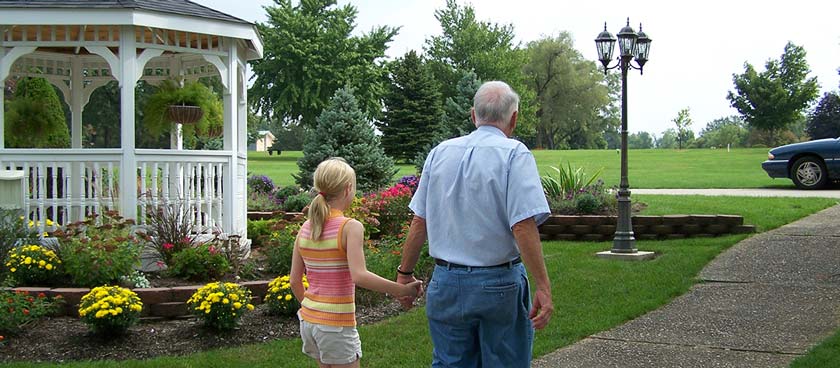





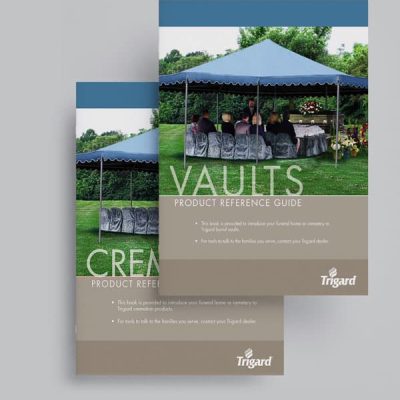
8 Responses
That’s a good point that burying cremated remains menas that you have one location that you can rely on them to be long-term. My husband and I have been talking about putting together wills and funeral plans even though we’ll probably be around for a while. I’ve been considering cremation, but luckily I have some time to make that decision. It’s good to know I could still be buried with my husband if that’s what he opts for. http://cremationchicago.com/services-offered/
Thanks for the comment, Mindy! I’m so glad you are thinking about your future. Planning ahead is the best gift you can give your family. I hope our article helped you make some of the difficult decisions that lie ahead!
I never really thought of this but I will consider it. I think a spot in a home that holds cremains like an urn is really a good idea. Really appreciate this. I have an urn and jewelry for my Father’s ashes. I really think it is a good idea. Cremation jewelry to hold ashes is really a great way to remember all those we have lost.
Thank you Peter for your comment. I agree that having both the urn and a piece of jewelry to keep your loved one close is a great way to cherish and remember them.
My father’s remains were placed in an urn which my stepmother has kept over a decade. She has prepaid arrangements for her cremated remains to be place in an urn, and both urns placed in a Columbarium. So it’s possible to keep an urn for years, but solid plans should be made for how the urn will be handled in the future.
Thank you for sharing this with us, as it is an option that every cremation family should be aware of. One of the benefits of cremation is that it offers a lot of different opportunities for memorialization. I am glad that final resting place arrangements have been made for your father’s cremated remains.
A friend has been cremated and will be buried between his parents at our small church cemetery. Is it necessary to involve the funeral home after we pick up the ashes? Can we dig the hole and do our own service without involving the funeral home? The church has approved.
Hi Carolyn, Thank you for contacting Trigard for input on interring cremated remains. The interment and protection of cremated remains is very similar to the interment of a loved one in a casket. It is always important to provide a clean a dry space for the ashes which are often placed into an urn. This is accomplished with the use of a lined and sealed urn vault which is most often required by cemeteries. It sounds as if you have been in contact with the chosen cemetery. You may want to consider asking them to share any bylaws they have in place for safe and secure interment of ashes.